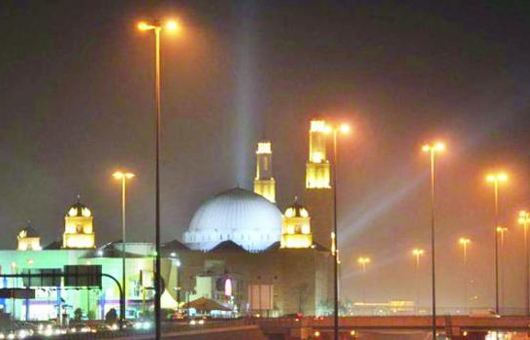 Riyadh, Jul 19: Two large mosques in the capital have made extensive arrangements for Muslims who would like to perform “itikaf” (meditative seclusion) during the last 10 of the holy month of Ramadan.
Riyadh, Jul 19: Two large mosques in the capital have made extensive arrangements for Muslims who would like to perform “itikaf” (meditative seclusion) during the last 10 of the holy month of Ramadan.
The management of the Al-Rajhi Mosque at Exit 17 and the King Khalid Mosque in Ummul Hammam had instructed the mosque authorities to make arrangements for those men and women who want to perform itikaf to provide accommodation and meals during stay in the mosques.
Those who stay in the mosques for the purpose of itikaf will be allowed accommodation and served meals during suhoor and iftar. Religious discourses have been arranged for the worshippers to spend their time usefully inside the mosques.
In an earlier message, Grand Mufti Sheikh Abdul Aziz Al-Asheikh said the worshipping act of itikaf can be done at any mosque and should not be confined to the Grand Mosque.
Itikaf is a spiritual retreat in Islamic ritual in which believers seclude themselves from others to engage solely in acts of worship and keep away from worldly dealings, especially during Ramadan.
“The entire city of Makkah is holy; believers may go to other mosques in Makkah for seclusion. They should not abandon their duties toward their families, We urge them to take care of their wives and children, while also engaging in nightly prayers and engaging in acts of worship,” the grand mufti said.
The Prophet’s Mosque in Madinah, has made preparations to accommodate 14,000 worshippers in the mosque for seclusion. The administration has doubled the facilities for worshippers and prospective stayers are registered online.
Those performing the act of seclusion in Makkah , have been advised to take three to four pairs of clothes for the 10 day period. Women should carry an extra abaya and hijab in case the regular one gets dirty.
Though it's hot in Makkah, one might feel a chill if one's clothes are too thin, especially in an air-conditioned hall. Cotton clothes help as they keep you cool during the day and warm at night.
People intending to perform itikaf are also advised to take special personal care and make provision for deodorant, oud, hand wipes, lots of tissue papers, small shopping bags, comb, small mirror, extra pair of glasses, tablets for headache and flu, face masks, tooth brush, tooth paste etc.
People performing itikaf generally remain on the first floor of Masjid Al-Haram (not the ground floor) because it's not as packed as it is downstairs. But it is still very crowded in Ramadan.
If worshippers enter the Haram Mosque through Gate No. 84 (one of the mini gates next to the huge King Fahd Gate) and go straight up using the stairs, they would come right to a female cabin (there are many more to the right and left). Ahead of the female cabin there's the men's area.
The great thing about this area is that there are ablution areas right behind so one does not have to go to bathrooms for wudhu. Also, if one leaves the mosque through Gate No. 84, the female bathrooms are straight ahead. So are the restaurants.





Comments
Add new comment